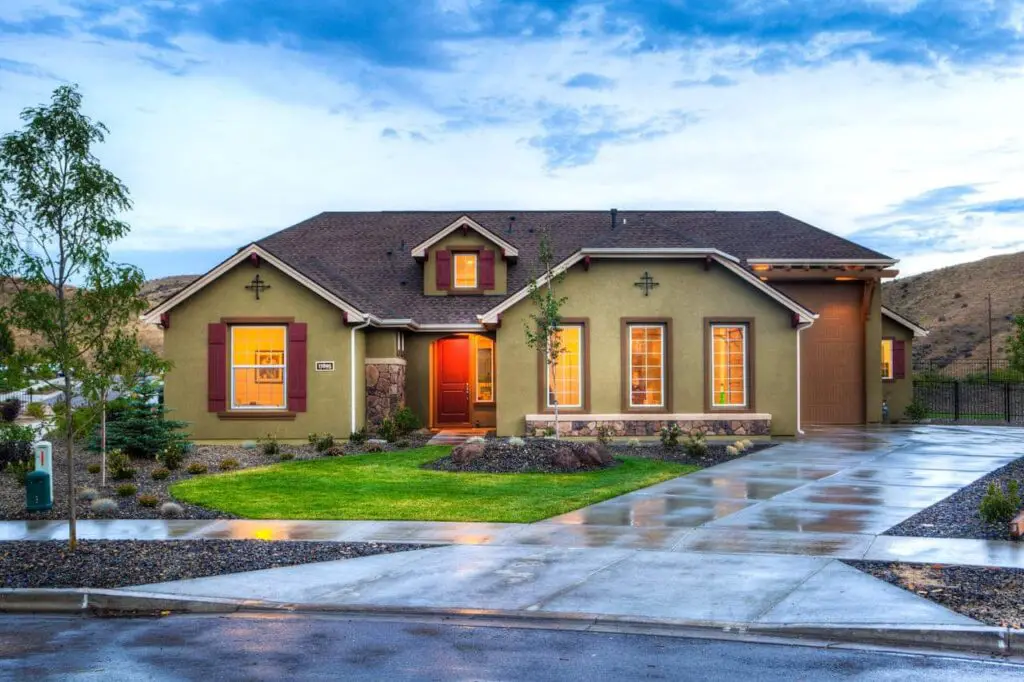A driveway is more than just a pathway to your home; it’s a critical element of your property’s curb appeal and functionality. Choosing the right material for your driveway involves considering factors such as durability, aesthetics, maintenance requirements, and budget. In this guide, we’ll delve into some of the most popular materials for driveways, including the versatile option of interlock stone installation.
Asphalt: A Time-Tested Favorite
Asphalt driveways have long been a popular choice for homeowners due to their affordability, durability, and ease of installation. Made from a mixture of aggregates, binder, and asphalt cement, asphalt driveways offer a smooth surface that is resistant to cracking and can withstand heavy loads such as vehicles.
Advantages of Asphalt Driveways:
- Affordability: Asphalt is often more budget-friendly compared to other driveway materials.
- Durability: Properly installed and maintained asphalt driveways can last for decades.
- Ease of Repair: Minor cracks and potholes can be easily repaired with asphalt patching materials.
Considerations:
- Maintenance: Regular sealing and occasional repairs are necessary to prolong the lifespan of an asphalt driveway.
- Environmental Impact: Asphalt production and installation can have environmental implications, including emissions and the consumption of finite resources.
Concrete: A Versatile and Durable Option
Concrete driveways are renowned for their strength, versatility, and aesthetic appeal. Made from a mixture of cement, water, and aggregates, concrete driveways offer a solid surface that can withstand heavy traffic and harsh weather conditions.
Advantages of Concrete Driveways:
- Strength and Durability: Concrete driveways are highly resistant to cracking, sinking, and shifting.
- Versatility: Concrete can be customized with various colors, textures, and patterns to suit the homeowner’s preferences.
- Low Maintenance: With proper sealing and occasional cleaning, concrete driveways can maintain their appearance for years.
Considerations:
- Cost: Concrete driveways tend to have a higher upfront cost compared to asphalt.
- Prone to Staining: Concrete is susceptible to staining from oil, grease, and other substances, requiring regular cleaning and maintenance.
- Curing Time: Newly poured concrete driveways require sufficient time to cure before they can be used, which may inconvenience homeowners during installation.

Interlocking Stone: Combining Aesthetics with Functionality
Interlocking stone driveways offer a blend of natural beauty, durability, and versatility. Comprising individual stones or pavers that fit together like a puzzle, interlocking stone driveways create a visually striking surface that enhances the curb appeal of any property.
Advantages of Interlocking Stone Driveways:
- Aesthetic Appeal: Interlocking stone driveways come in a wide range of colors, shapes, and patterns, allowing homeowners to create unique designs that complement their landscaping.
- Durability: When properly installed, interlocking stone driveways can withstand heavy loads and resist cracking and shifting.
- Permeability: The gaps between interlocking stones allow for water drainage, reducing the risk of pooling and runoff.
Considerations:
- Installation Complexity: Interlocking stone driveways require meticulous installation to ensure proper alignment and stability, which may increase labor costs.
- Maintenance: While interlocking stone driveways are relatively low maintenance, periodic re-leveling and replacement of damaged stones may be necessary over time.
- Cost: Interlocking stone driveways typically have a higher upfront cost compared to asphalt or concrete, but their longevity and aesthetic appeal can provide long-term value.
Pavers: Stylish and Durable
Pavers, typically made from concrete, brick, or natural stone, are another popular choice for driveways. These individual units fit together tightly to create a durable and visually appealing surface.
Advantages of Paver Driveways:
- Aesthetic Versatility: Pavers come in various shapes, sizes, and colors, allowing for endless design possibilities.
- Durability: When installed correctly, paver driveways can withstand heavy loads and resist cracking.
- Easy Repairs: If a paver becomes damaged, it can be replaced without disrupting the entire driveway.
Considerations:
- Cost: Paver driveways can have a higher upfront cost compared to some other materials.
- Installation Time: Proper installation of pavers requires time and expertise, which may extend the project timeline.
- Maintenance: While pavers are relatively low maintenance, periodic re-leveling and sealing may be necessary to preserve their appearance and integrity.
Brick: Timeless Elegance and Durability
Brick driveways exude timeless elegance and offer durability that can withstand the test of time. Made from fired clay, brick driveways are renowned for their classic appearance and ability to complement a variety of architectural styles.
Advantages of Brick Driveways:
- Aesthetic Appeal: Brick driveways impart a sense of classic charm and sophistication, enhancing the overall aesthetics of a property.
- Durability: High-quality bricks are resistant to wear, fading, and weathering, ensuring longevity and minimal maintenance.
- Customization: Bricks come in various colors, sizes, and patterns, allowing homeowners to create unique designs that reflect their personal style.
Considerations:
- Cost: Brick driveways can have a higher upfront cost compared to some other materials, primarily due to the quality of the bricks and labor-intensive installation.
- Maintenance: While brick driveways are relatively low maintenance, periodic cleaning and resealing may be necessary to preserve their appearance and integrity.
- Slippery Surface: Brick driveways may become slippery when wet, posing a potential safety hazard, especially in regions prone to rain or snow.
Gravel: A Rustic and Budget-Friendly Option
Gravel driveways offer a rustic charm and affordability that appeals to many homeowners. Composed of small stones or aggregates, gravel driveways provide excellent drainage and can be easily installed or refreshed.
Advantages of Gravel Driveways:
- Affordability: Gravel driveways are one of the most budget-friendly options for homeowners.
- Easy Installation: Gravel driveways can be installed quickly and easily without the need for specialized equipment.
- Natural Drainage: The porous nature of gravel allows for excellent water drainage, reducing the risk of flooding and erosion.
Considerations:
- Maintenance: Gravel driveways require regular maintenance, including replenishing gravel and controlling weed growth.
- Stability: Gravel driveways may develop ruts and uneven areas over time, requiring periodic leveling and compaction.
- Limited Aesthetic Options: While gravel driveways have a rustic appeal, they may not offer the aesthetic versatility of other materials like concrete or interlocking stone.

Conclusion
Choosing the right material for your driveway involves balancing factors such as durability, aesthetics, maintenance requirements, and budget. Whether you opt for the affordability of asphalt, the versatility of concrete, the natural beauty of interlocking stone, or the rustic charm of gravel, each material offers its own unique advantages and considerations. By carefully evaluating your priorities and consulting with a professional contractor, you can select the perfect driveway material to enhance the functionality and curb appeal of your home for years to come.




